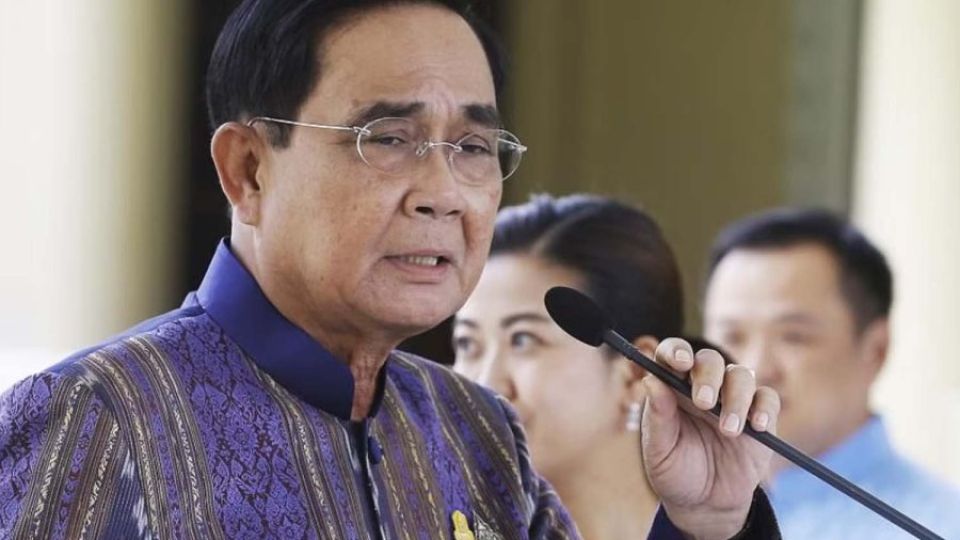July 12, 2023
BANGKOK – Thai Prime Minister Prayut Chan-o-cha announced on Tuesday that he was retiring from politics, two months after Thais voted in an election to reject the pro-military government.
In a Facebook post uploaded by his United Thai Nation (UTN) Party on Tuesday afternoon, Mr Prayut, 69, thanked people for supporting him and his party during the May 14 general election, highlighting that it allowed the UTN to win 36 seats in the 500-seat House of Representatives.
Recalling the time he spent campaigning with the UTN, which he quit on Tuesday, he wrote: “I experienced incredible support from both party members and the public. I can feel their understanding, sympathy, and confidence in me.”
Mr Prayut remains as caretaker prime minister.
A former army chief who first came to power after leading a military coup in 2014, Mr Prayut was not a member of any political party for most of his premiership.
He led a military government for five years after the coup, and was subsequently put forward as prime minister after the 2019 election by a coalition headed by the Palang Pracharath Party.
It was only in January, after falling out with the military-aligned Palang Pracharath, that he officially joined UTN to contest the May 14 election.
But the election was won by the progressive Move Forward Party (MFP) – with the pro-democracy Pheu Thai Party coming a close second – in what was seen as a resounding rejection of the military-aligned politicians who had held sway since the coup.
Mr Prayut’s retirement from politics puts paid to speculation about his next move as Thailand’s Parliament prepares to vote on Thursday on the country’s next prime minister.
An eight-party coalition, wielding 312 seats in the Lower House, intends to put forward MFP leader Pita Limjaroenrat for the post.
But the Lower House majority is not enough to guarantee Mr Pita’s premiership because a military-installed Senate will also vote on the choice of prime minister alongside the elected legislators. This means he needs at least 376 votes to secure his premiership.
Some senators have expressed reservations about voting for Mr Pita because the MFP aims to amend the lese majeste law, which criminalises insulting or defamation of the king, queen or heir apparent, with up to 15 years’ jail for each count.
While critics of the law argue that it is misused for political ends, conservatives see any attempt to meddle with it as a threat to the monarchy itself.
Yet it would have been difficult for Mr Prayut to return as premier, given several parties’ dismissal of the idea of a minority government.
Mr Prayut wrote that he had worked over the past nine years “with zeal and passion to safeguard the nation, religion, and monarchy, as well as for the benefit of the people I adore”, and that his efforts are yielding results.
Highlighting the work his government had done to improve transportation, flood relief, digital technology and the handling of the Covid-19 pandemic, and to help vulnerable communities while maintaining the country’s financial discipline, he wrote: “I genuinely hope that the new administration will continue to grow.”
He signed off as “General Prayut Chan-o-cha”.
Analysts have warned that attempts to stop the MFP-led coalition forming the government could stir unrest.
Mr Pita, in a video message posted on social media on Tuesday, said that legislators have the power to use their rights to fulfil the wishes expressed by voters during the election.
Addressing the elected legislators and appointed senators, he said: “To vote for the majority government is to give Thailand a chance to move ahead in the way it deserves.”


